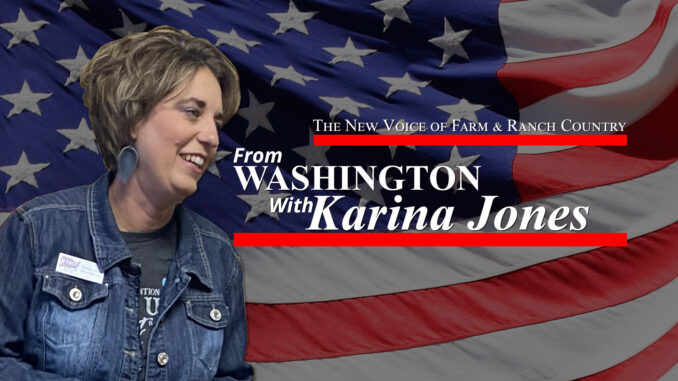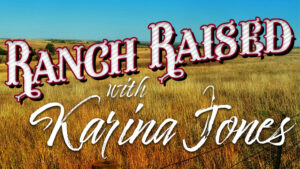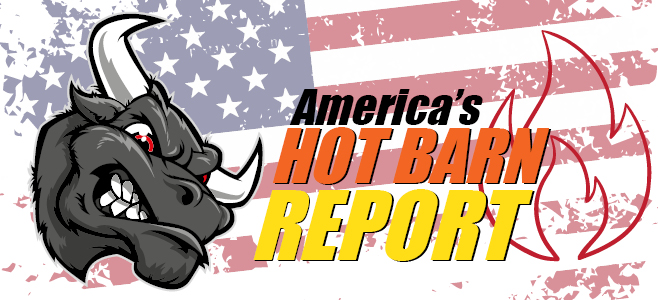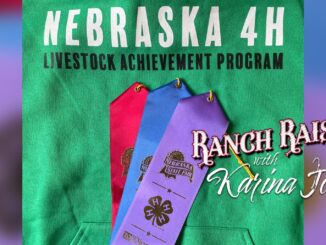

From Washington with Karina Jones is brought to you by BillionAuto.com one of the nation’s largest automotive websites!
Karina Jones is a real-life ranch wife in the Nebraska Sandhills, Field Director for R-CalfUSA and one of the most highly sought-after speakers in the cattle industry nationwide!
And now the NEW VOICE of Farm & Ranch Country, Karina Jones –
Hello everyone, out there in farm and ranch country!
Today’s lesson is B is for Brazilian Beef and C is for Crazy! Being a mom of kids who attend public school and thus eat school lunches, I like to keep an eye on what the USDA is doing with the school lunch program.
As a cattle producer it infuriates me that taxpayer money is used to purchase beef for our school lunch program from what may be from international origin because, as we all know there is no mandatory country of origin labeling laws for beef and pork.
The USDA has just posted a rather lengthy proposed rulemaking on the Federal Register where they are soliciting comments on a number of issues regarding school lunch programs. I found Section 13 particularly interesting as it is titled the “Buy American” section of the proposal.
School lunch and breakfast program regulations do not currently require school food authorities to include any Buy American provisions in required documented procurement procedures or contracts, however, USDA guidance has strongly advised schools to do it. This proposed rule would require school food authorities to include the Buy American provision in documented procurement procedures and contracts for foods and food products. My fear is those well-meaning lunchroom managers are going to be spending a lot of time looking for a MCOOL label on beef and pork that doesn’t exist.
Another proposed rule change seeks to strengthen the Buy American requirement while recognizing that purchasing domestic food products is not always practical for schools. This rulemaking proposes to maintain the current limited exemptions and adding a limit to the money that can be used for non-domestic purchases. To do this, USDA proposes to codify the circumstances which are excepted from the Buy American provision as well as create a new threshold limit for school food authorities that use these exceptions. The two exceptions USDA proposes to codify will continue to apply when: The product is not produced or manufactured in the U.S. in sufficient and reasonably available quantities of a satisfactory quality which makes sense in a case like bananas. Or the competitive bids reveal the costs of a U.S. product are significantly higher than the non-domestic product. Now that one gives me some concern. It looks to me like they are looking to codify their own loopholes to protect their global trading partners.
I wonder if USDA Secretary Tom Vilsack will be submitting the comments he shared with all of America just a few weeks ago when he was pressed by lawmakers to stop buying products from JBS and his reply was, “Removing a firm from government-wide procurement would potentially impair competitive choice for the taxpayer in securing affordable food for the range of needs that government must provide for, from school lunches to meals for our soldiers,” Vilsack wrote.
I would love to just see the USDA hand the reins over to local school districts where local parents and school lunch officials can put their heads together to create solutions and most importantly feed our kids a good meal.
That’s all for today folks. I will see you right back here next week bringing you ag news from our nation’s capital to this great American radio station!

Karina ranches with her husband, Marty, and 4 children near Broken Bow, NE. She grew up in western NE, with roots also in southwest SD. The cattle industry and raising kids is her passion.
Tune in Fridays on The Hot Barn Report, where she deep dives into cattle industry issues and highlights industry reforms or listen to Ranch Raised with Karina Jones a slice of daily life on the Jones Ranch.







